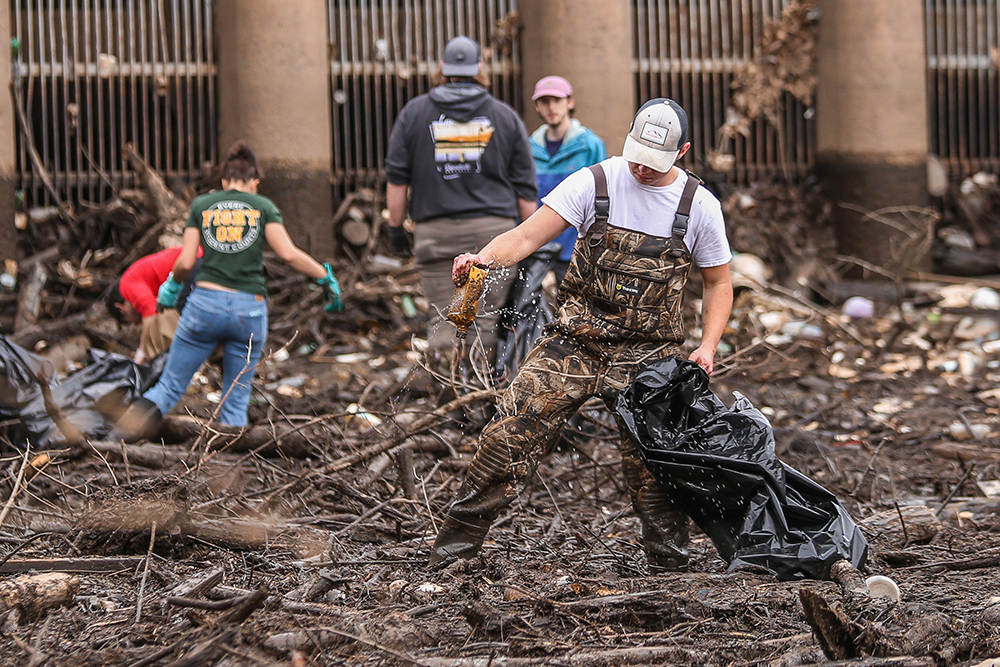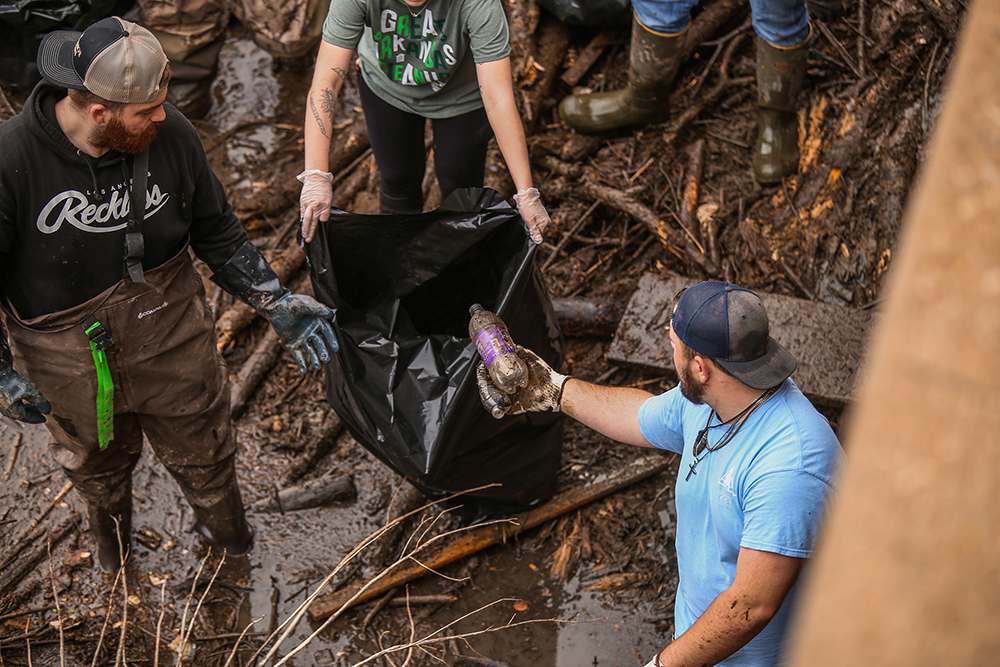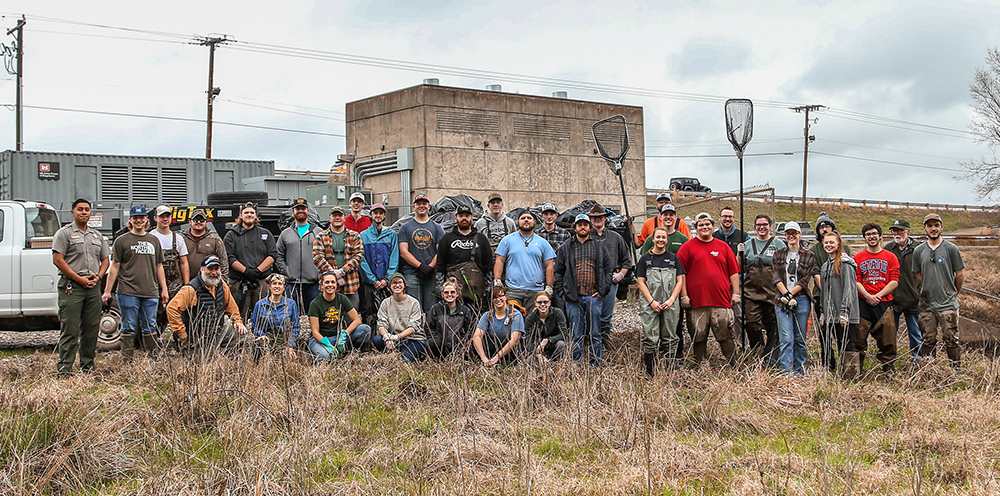
The 14-foot trailer overflowing with garbage bags, tires and every other conceivable form of refuse told the tale.
Arkansas Tech University fisheries and wildlife sciences students and faculty put on their waders and spent the morning hours on Friday, March 18, pulling two tons of items that had washed downstream out of the water near the Prairie Creek pump station in Russellville.
“We’ve all taken classes about conservation and what we need to do to help, so to come out here and actually put what we’ve learned into action is one of the best feelings you can have,” said Hunter Hensley, senior ATU fisheries and wildlife sciences student from Holland in Faulkner County. “If you feel like the world needs to be a better place, do something. If you see trash, stop and pick it up. If everybody does a little bit, we can all benefit from it.”
The project is part of an ongoing partnership between ATU fisheries and wildlife sciences faculty and students and the U.S. Army Corps of Engineers.
“It’s an awesome thing,” said Jason Velazquez, park ranger for the U.S. Army Corps of Engineers and ATU alumnus. “I’ve been a park ranger for almost three years now, and this is the cleanest I’ve ever seen this pump station. They did an amazing job and they’ve far exceeded any standard I had for this. It’s a beautiful thing for our trails and for Russellville in general. I can’t express what it means for these students and faculty to come out here and make this place look so much better.”
The last person out of the water was Dr. Susan Colvin, ATU assistant professor of fisheries science.
“I kept thinking that if I run by in a couple of days and I see a cup, I’ll wish I would’ve gotten it while I was down there,” said Colvin.
A member of the ATU faculty since 2020, Colvin said her students read about plastic pollution in fresh water before participating in the clean-up project.
“One thing that really struck me and them is that even though plastic is the biggest pollutant in fresh water, there’s almost no research on it and most water treatment facilities don’t screen for plastics,” said Colvin. “We haven’t come up with a solution yet. It’s something we need to start thinking about tackling.”
Colvin and her students are doing exactly that. As part of the clean-up project, ATU faculty and students gathered data about the types of trash that were present near the Prairie Creek pump station. They will use that information to develop a proposed management plan they will share with the U.S. Army Corps of Engineers and other entities in the region.
“This area is a major drainage for most of Russellville,” said Carice Godbey Kimbrell, an ATU graduate student in fisheries and wildlife sciences from Poplar Bluff, Mo. “That’s why so much trash accumulates here. We’re just trying to make sure the wildlife in the park stays clean, the people get to enjoy Bona Dea Trails and the fish that sportsmen are catching on the other side of the pump station are not contaminated with Russellville’s trash.”
Velazquez pointed out that in addition to the benefits for wildlife in the area, the clean-up project will result in a reduction of trash along the shoreline of Lake Dardanelle.
“We teach a lot of conservation and management of resources,” said Dr. Jorista Garrie, who is assistant professor of wildlife science at ATU and will be promoted to associate professor as of July 1. “To see what the impacts can be of pollution, trash, everyday waste and single-use plastics…we found a lot of fish in here that we grabbed with our bare hands and threw back in the water. You have to think of what the impacts are of plastics breaking down, animals getting caught in trash and conservation as a whole. It puts things in perspective. We can teach them a lot in the classroom, but once they see this maybe it will make them think twice before they purchase single-use plastics.”
For senior ATU fisheries and wildlife sciences student Gunner Gilbert of Mount Ida, those classroom lessons came to life when he observed mankind’s impact on Prairie Creek.
“There are a lot of different species here and there is a big ecological impact on the area,” said Gilbert. “We’re talking in class right now about plastic particles in water systems, how greatly they impact the environment, how long they stay in the environment and how those particles can get into the systems of fish. It can greatly shorten their lifespan and affect the water quality.”
Colvin, who expressed appreciation to the U.S. Army Corps of Engineers for its partnership on the project, said she hopes in future years to engage local K-12 students in similar conservation projects that will provide ATU students with opportunities to serve as mentors.
“I really want our students to be doers,” said Colvin. “I want them to see problems that seem overwhelming, and instead of lamenting or getting bummed out or blaming someone else, I want them to see problems, even big ones, and know they can fix it. I want them to think really, really big.”







